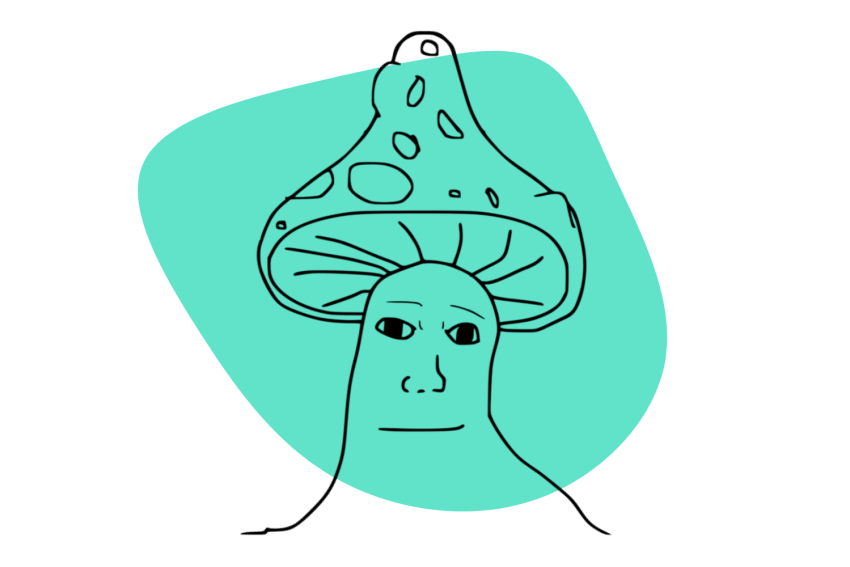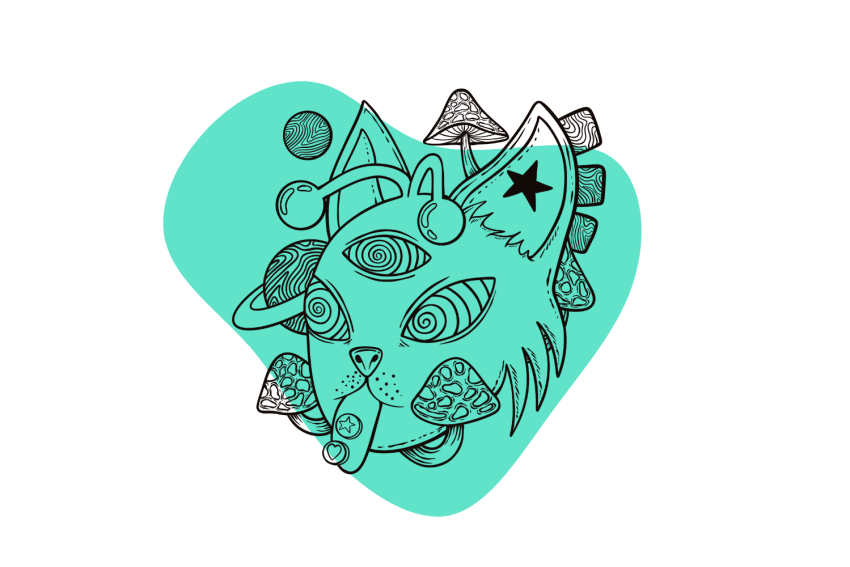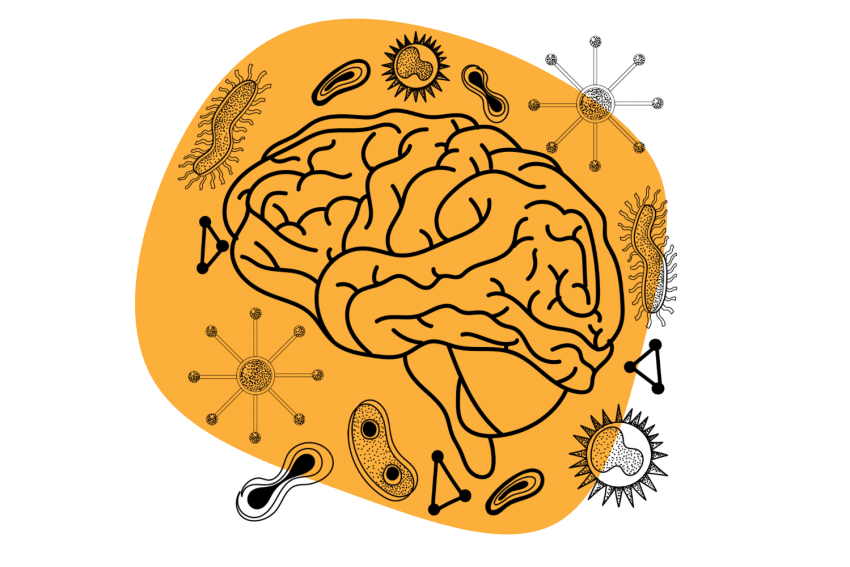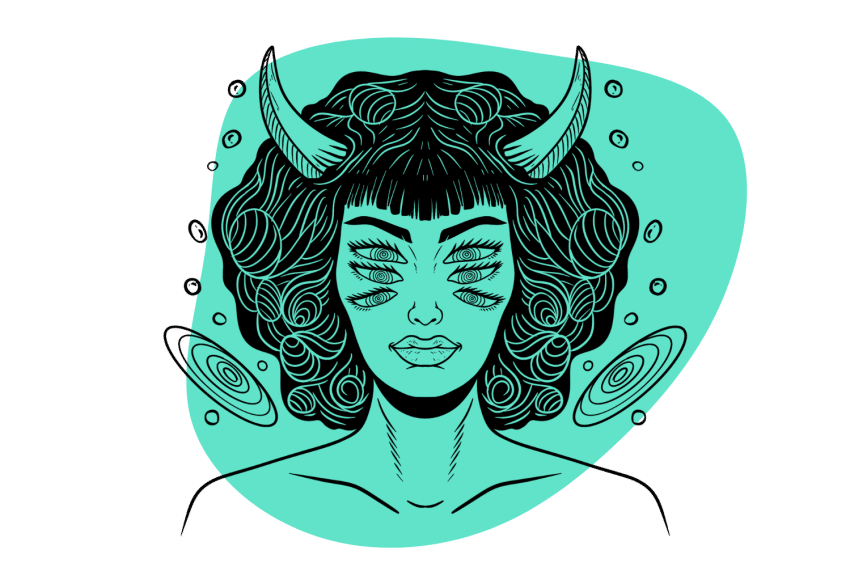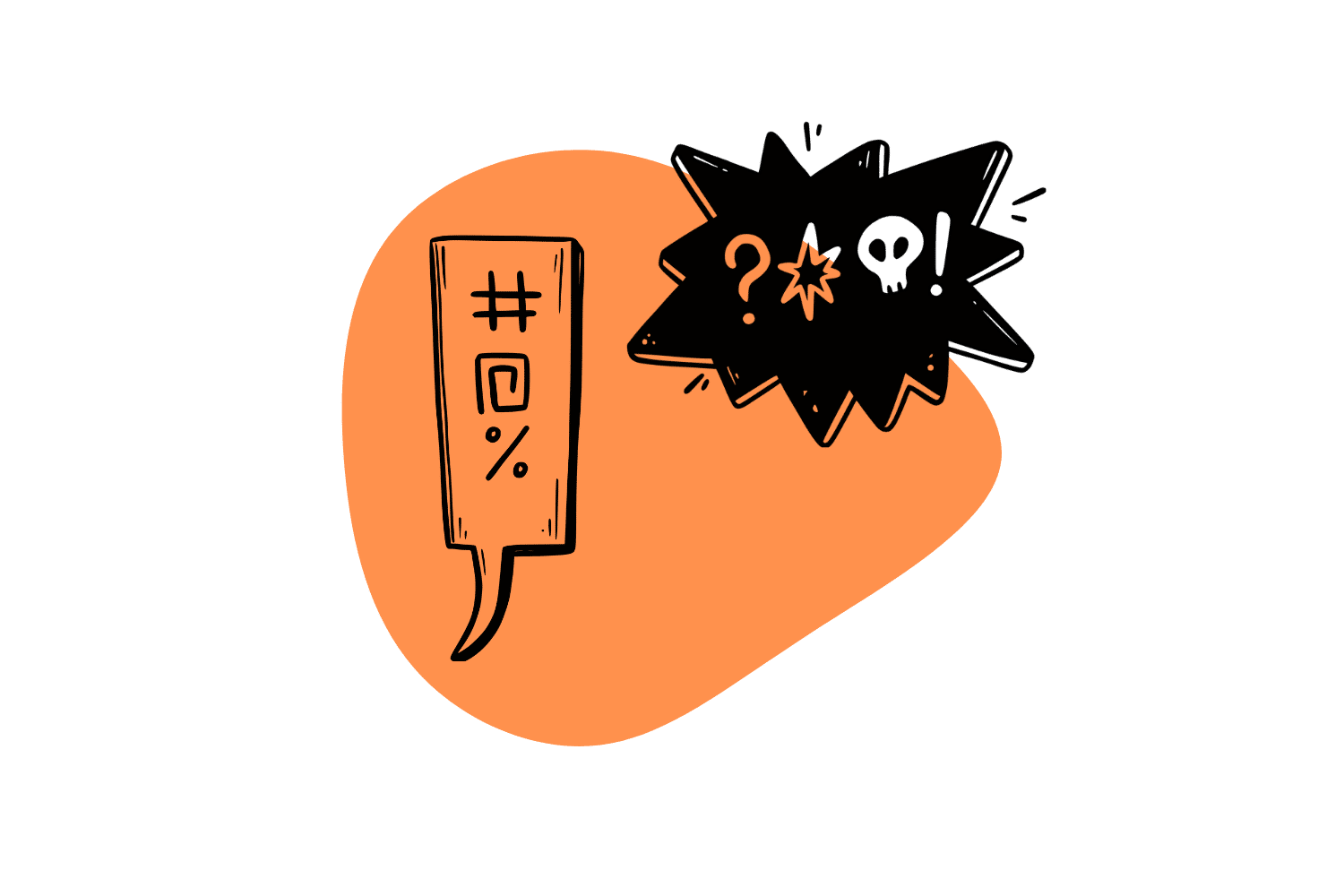The Dark Side of Existence: Understanding the Link Between Existential Anxiety & Doomerism
Doomerism: The belief that the world is going to end soon. But most people will be too busy scrolling through TikTok to notice.
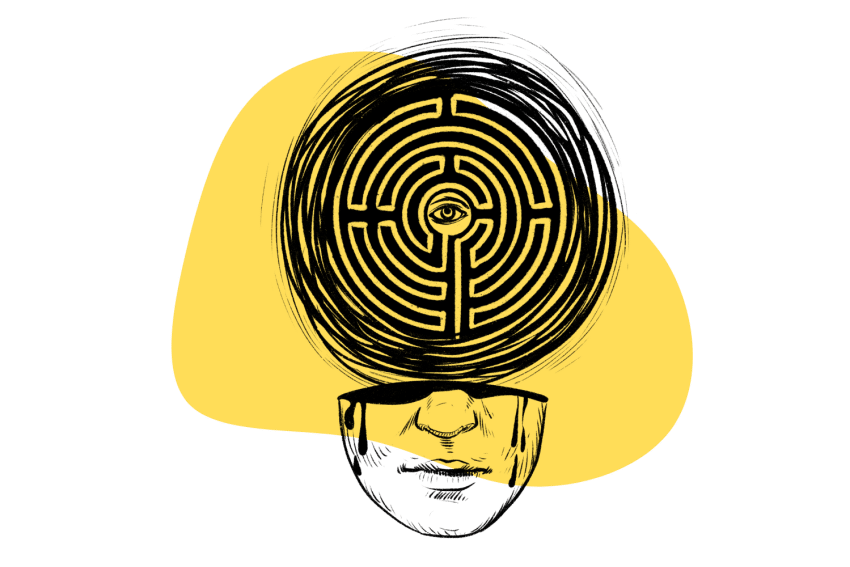
Welcome to the dark side of existence. A place where the void of meaning and purpose is ever-present and the weight of the world’s problems feels suffocating.
In this article, we’ll dive into the depths of existential anxiety and doomerism — two closely related concepts plaguing humankind for centuries — and how they shape our understanding of the world.
We’ll explore the origins of doomerism and some strategies for coping with its side effects in this unflinching look at this dystopian philosophy.
What Is Existential Anxiety?
Existential anxiety is the overwhelming dread, confusion, and despair that comes from contemplating the meaning and purpose of one’s existence.
It’s the nagging feeling that there must be more to life than what we’re currently experiencing, coupled with the fear that we’ll never find it.
Others describe it as the sense that life is meaningless and that we’re just going through the motions, existing in a world that doesn’t make sense.
Existential anxiety can also encompass the fear of death and the realization that we’re all going to die and that our time on this earth is limited and, ultimately, insignificant.
Although existential anxiety can be a source of emotional distress, it’s not considered a mental health disorder in and of itself. It’s a normal and natural human experience that arises from the awareness of one’s own existence and the human condition.
With that said, if you’re finding it challenging to shake off these feelings and it’s causing significant distress in your life, it might be time to visit a professional. Constant feelings of dread or worry could signify generalized anxiety disorder (GAD), major depressive disorder (MDD), or other mental health conditions.
What Is Doomerism?
Doomerism is a worldview that believes the world is heading toward catastrophic collapse, often attributed to climate change, overpopulation, economic inequality, political corruption, or destructive advancements in technology.
But doomerism isn’t just a pessimistic outlook on life; it’s a full-blown belief that the end is near and there’s nothing we can do about it.
And that kind of attitude can be dangerous.
It can lead to feelings of hopelessness, despair, and helplessness, which can contribute to depression and anxiety.
And let’s not forget about the isolation that comes with it. As people may avoid social interactions and connections with others, believing that the world is headed towards inescapable doom, they may see no point in investing in relationships.
Doomerism and existential anxiety are related because both involve a sense of unease or uncertainty about the future, but they are distinct concepts.
While doomerism can be considered a form of existential anxiety that has developed into a subculture, existential anxiety is a more general term that refers to the human experience of struggling to find meaning in life and dealing with the inherent uncertainty of existence.
Doomerism In Popular Culture
The feeling that life is meaningless or that the world is making a turn for the worst isn’t a new concept by any means.
These philosophical issues have existed since the beginning of recorded history, but the rise of doomerism in popular culture has brought these concerns to the forefront of public consciousness.
Popular culture is a mirror that reflects the anxieties and concerns of society back at us.
Take, for example, the current state of the world, with issues like climate change, political turmoil, and economic instability on the rise. Popular culture is beginning to reflect these concerns more and more.
From “Interstellar” to “Mad Max: Fury Road” or the newest release from HBO (The Last of Us), these films depict worlds on the brink of collapse and the nature of human beings as they find ways to survive.
But it’s not just a reflection; it’s also a powerful tool — popular culture can shape and influence our perceptions and attitudes toward certain issues.
A movie that portrays a particular issue in a negative or positive light can change how we see that issue. As we face new and pressing problems, it’s important to consider how the media we consume reflects and shapes our understanding of these issues.
Let’s have a look at a few examples of doomerism in movies.
1. The Day After Tomorrow (2004)
This disaster film depicts a world where global warming has caused a massive climate crisis, leading to a new ice age and the collapse of civilization.
The film’s portrayal of an impending disaster can be seen as a metaphor for doomerism, as it depicts a world on the brink of collapse due to humanity’s actions.
The characters have to face mortality — their own and humanity’s as a whole — contributing to existential anxiety as they struggle to find their place in the world.
2. Interstellar (2014)
This science fiction film deals with themes of climate anxiety through environmental collapse and the future of humanity as a group of scientists embark on a mission to find a new habitable planet.
The main protagonist is a pilot and engineer forced to leave his family with the weight of humanity’s survival on his and his team’s shoulders, along with the existential question of what happens if they fail.
“Interstellar” deals with humanity’s limited understanding and how the universe is limited by our perspectives and the technology available to us, which contributes to feelings of existential anxiety.
The film also explores the idea of the human desire for connection and the sacrifices we make for our loved ones.
3. Mad Max: Fury Road (2015)
“Mad Max: Fury Road” is a sequel to the classic 1979 “Max Max Trilogy” action films set in a post-apocalyptic world where resources are scarce, and society has collapsed.
This story deals with the themes of doomerism and existential anxiety through the characters’ struggles to survive, the human desire for freedom, the sacrifices made for freedom, and the struggle for power and control in a doomsday scenario.
4. Joker (2019)
The Joker follows the story of a struggling comedian, Arthur Fleck, as he descends into hopelessness, isolation, despair, and madness as he feels ignored and mistreated by society.
This movie is an excellent commentary on how doomerism can manifest within an individual — eventually leading to violent and destructive behavior.
5. Other Examples of Doomer Movies
Doomerism is ubiquitous in the movie industry. Despite the rise in doomerism tendencies with younger generations, representation in pop culture has been fairly steady over the past 30 years.
Some doomerism movies over the years:
- Everything Everywhere All at Once (2022)
- Don’t Look Up (2021)
- She Dies Tomorrow (2020)
- The Lighthouse (2019)
- Under the Silver Lake (2018)
- Blade Runner 2049 (2017)
- First Reformed (2017)
- Birdman or (The Unexpected Virtue of İgnorance) (2014)
- Nightcrawler (2014)
- Prisoners (2013)
- Her (2013)
- Enemy (2013)
- The Place Beyond the Pines (2012)
- Drive (2011)
- The Girl With the Dragon Tattoo (2011)
- Control (2007)
- The Machinist (2004)
- Lost in Translation (2003)
- Donnie Darko (2001)
- American Psycho (2000)
- Requiem for a Dream (2000)
- Fight Club (1999)
- American Beauty (1999)
- The Matrix (1999)
- The Truman Show (1998)
- Trainspotting (1996)
- Pulp Fiction (1994)
- Naked (1993)
- Falling Down (1993)
- Full Metal Jacket (1987)
- Blade Runner (1982)
- Apocalypse Now (1979)
- Blue Collar (1978)
- Taxi Driver (1976)
- 2001: A Space Odyssey (1968)
How To Tell If You’re Experiencing An Existential Crisis
An existential crisis is a period of intense questioning and self-doubt about the meaning and purpose of existence.
An existential crisis may set in after receiving a terminal diagnosis, psychedelic or dissociative drug use, the loss of a loved one, or simply by random chance.

Crisis can manifest in different ways — some people feel a sense of hopelessness and despair, while others feel a paradoxical sense of excitement and liberation.
One way to tell if you’re experiencing an existential crisis is if you’re struggling to find a sense of purpose or meaning in life.
- Are you questioning the values and beliefs you’ve held dear for so long?
- Are you questioning the social norms and values that have guided your life?
- Are you feeling unfulfilled in your job, relationships, and daily activities?
- Do you feel like there must be something more to life?
If you’re nodding your head, then you may have a case of existential crisis on your hands.
But before you start freaking out, remember that it’s a normal part of the human experience.
In fact, you’re not alone.
Pretty much everyone goes through these thoughts at some point in their life.
But here’s the thing — an existential crisis can be an opportunity for growth and self-discovery.
Coping With Existential Anxiety With Philosophy
Existential anxiety and doomerism have plagued humanity for centuries.
If you’re looking for some answers, why not check out what the philosophers have to say?
These thinkers have different takes on existential anxiety, coming from different philosophical and cultural backgrounds. You might find one that really resonates with you and helps you make sense of what you’re going through.
So, if you’re feeling lost and alone in your existential quandaries, take comfort in the fact that these brilliant minds have been there, too.
When it comes to existential anxiety, there’s no one more iconic than Søren Kierkegaard, the OG of existential thinkers.
Søren Kierkegaard
This Danish philosopher’s work delves deep into the human condition and the sense of dread and responsibility that comes with our freedom.

In his book, The Concept of Anxiety, Kierkegaard writes that “anxiety is the dizziness of freedom,” relating that the freedom to make choices can lead to feelings of confusion and disorientation, which is a source of anxiety.
He uses the metaphor of a person standing on the edge of a tall building to illustrate the concept of anxiety. This individual experiences a range of emotions as they gaze downward — dread, a fear of falling, and an overwhelming urge to jump.
This mixture of emotions is what Kierkegaard defines as anxiety, which arises from the individual’s complete freedom of choice.
The ability to choose whether to jump or stay in place is what makes the situation so unsettling, akin to the sensation of being on a rollercoaster of emotions.
He argues that anxiety is a fundamental aspect of the human condition and stems from the freedom to make choices about one’s existence. Therefore, this anxiety can be overcome by finding a sense of purpose or meaning in life.
Jean-Paul Sartre
Sartre is a French existentialist philosopher who was heavily influenced by Kierkegaard’s ideas, particularly his emphasis on the individual’s freedom and responsibility. In fact, Sartre expanded upon it in his philosophy of existentialism.
According to Sartre, when individuals fail to accept this responsibility and instead try to evade it, they can experience feelings of anxiety, guilt, and despair.
Sartre believed that the way to overcome existential anxiety is to fully embrace one’s freedom, accept responsibility for one’s actions, and not let society or external factors dictate their life.
Living this way, the individual could transcend existential dread and find a sense of purpose and meaning.
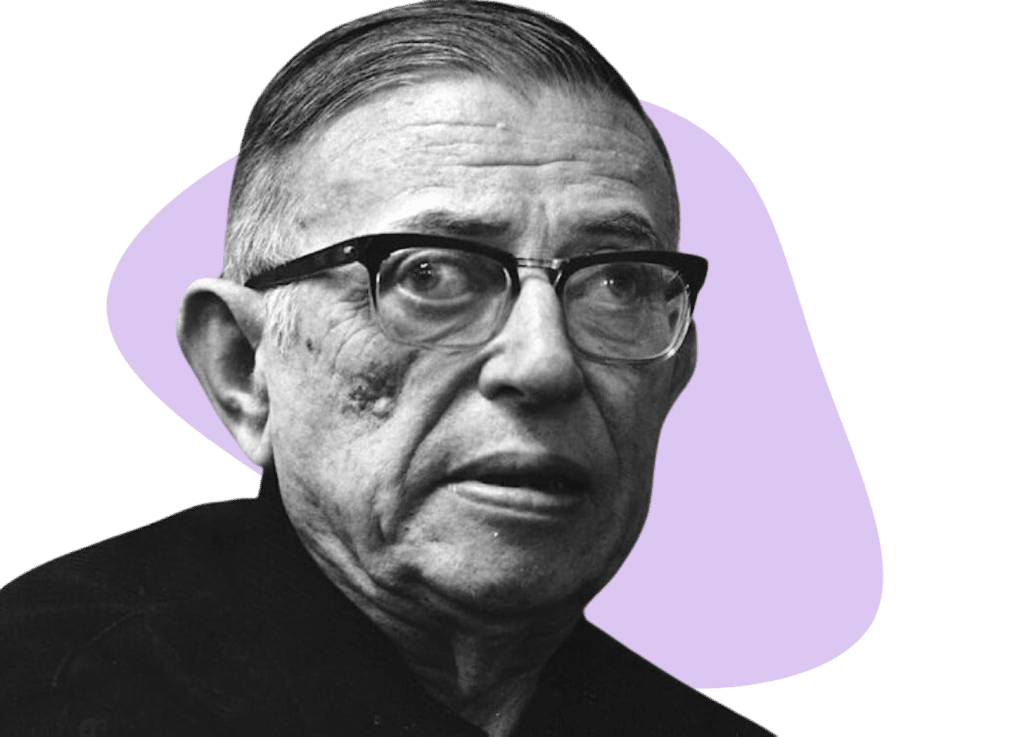
Friedrich Nietzsche
Nietzsche, the father of nihilism, spent a lot of time thinking and writing about the problem of existential dread and doomerism.
He believed that the root of anxiety is the fear of not achieving one’s goals and desires before dying. He also believed that traditional morality and religion, which teach individuals to fear death and seek an afterlife, reinforce this fear and anxiety.
Nietzsche proposed that individuals should embrace the concept of eternal recurrence, which holds that all events in the universe will happen again and again in an infinite cycle.
He believed that by embracing this concept, individuals could accept their mortality and find solace in it.
He also believed that individuals should strive to live a life of strength and creativity, living in a way that is true to themselves and not being constrained by traditional morality and religion.
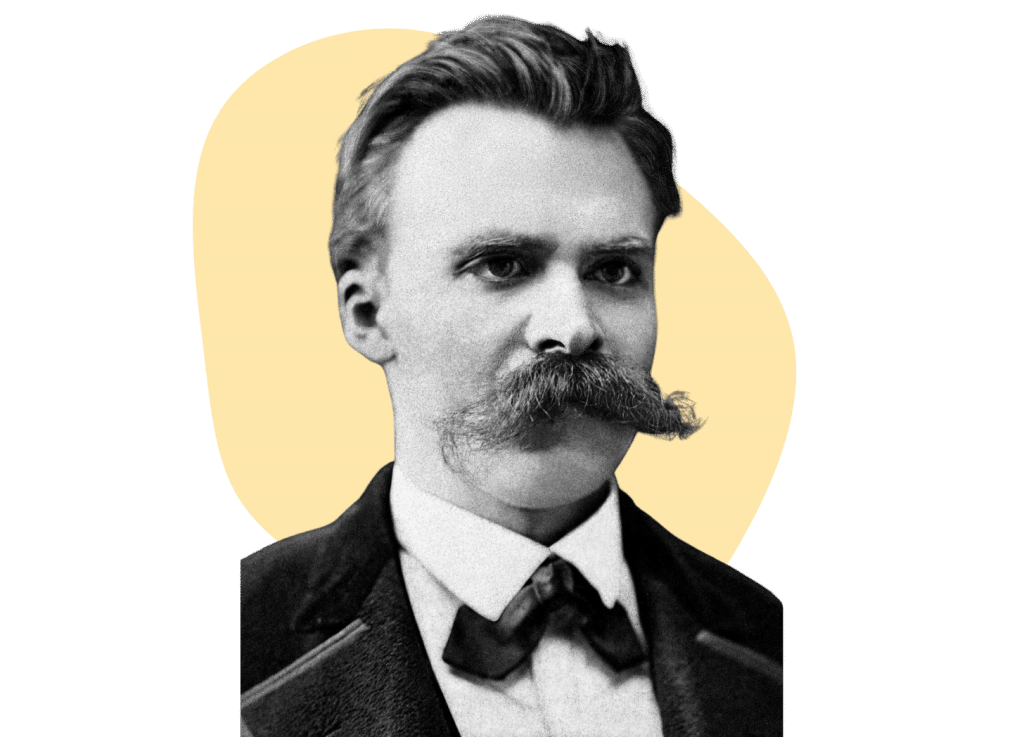
Martin Heidegger
Heidegger believed that existential anxiety arises from an individual’s confrontation with mortality.
He proposed that the way to overcome it is to exist authentically, embracing that death is inevitable. The concept of “dasein,” or “being there,” means to be fully present in the world and living in a way that is true to oneself, rather than trying to escape from or deny one’s mortality.

Psychedelics & Existential Anxiety
For many, their first experience with existential anxiety came from experimenting with psychedelic drugs such as magic mushrooms, LSD (lysergic acid diethylamide), DMT (dimethyltryptamine), and dissociatives like ketamine or DXM (dextromethorphan).
One reason for this may be that psychedelics can disrupt an individual’s sense of self and ego, causing them to question their identity and the nature of reality.
This can lead to anxiety, as the individual may feel overwhelmed or disoriented by the experience. Psychedelics can also amplify emotions, making any underlying anxieties and problems even more pronounced.
Through these personal psychological confrontations, psychedelics have therapeutic potential for treating conditions such as anxiety and depression and are used in therapies for end-of-life care.
Psychedelics, mainly when applied in psychedelic-assisted therapy, can encourage changes in perception, thought, and emotion, allowing individuals to gain new perspectives on their problems. This gives a sense of liberation from the self, which can help them process and overcome feelings of dread.
But before you dive into the rabbit hole, be aware that psychedelic experiences are highly subjective. While some people may find relief from their existential crises through tripping, it could worsen this feeling in others.
Strategies for Managing Existential Anxiety & Doomerism
Existential anxiety is a natural part of the human experience and can stem from several different sources.
While existential anxiety can be overwhelming, here are a few key strategies for managing it:
- Professional help — Talk to a therapist or counselor who can help you navigate the feelings you’re experiencing. They can provide a safe space to explore your thoughts and feelings and help you develop personalized strategies to cope with them.
- Seek out new experiences — Trying new things can help you find new perspectives and a sense of purpose. Take a class, volunteer, or travel to new places.
- Connect with your community — Talking to friends and family, or joining a support group, can help you feel less isolated in your struggles.
- Practice mindfulness — Adopting the practice of mindfulness can help you stay present in the moment and reduce feelings of anxiety and uncertainty. Try meditation or yoga to help you stay grounded.
- Read and learn from others — Reading books (like from the philosophers we’ve mentioned) on existentialism and related topics can help you understand your feelings better and gain new insights.
The Takeaway: What Is Existential Anxiety & Doomerism?
Existential anxiety is a natural part of the human experience and is often triggered by the realization of our own finitude and mortality.
This realization can lead to dread, uncertainty, and a sense of overwhelming responsibility for our lives. The concept of doomerism, a worldview that sees the world as heading towards a dire or catastrophic end, can exacerbate these feelings of anxiety.
However, it’s possible to manage existential anxiety by seeking professional help, incorporating mindfulness and self-care practices, exploring different philosophies and worldviews, and finding meaning and purpose in life.
The key takeaway is that existential anxiety and doomerism are not to be feared. Rather, they can serve as a reminder of the preciousness of our existence and the importance of living in a meaningful and authentic way.
Doomerism FAQs
1. What’s the Difference Between Pessimism & Doomerism?
Both can lead to feelings of hopelessness and helplessness, but they aren’t the same. D
Doomerism is a belief or mindset characterized by a negative outlook on the future. It’s often associated with a sense of urgency and a belief in impending doom.
Pessimism, on the other hand, is a general attitude of expecting the worst in any situation.
2. What’s the Difference Between Doomerism & Existential Anxiety?
Existential anxiety is a common feeling humans experience when overcome by questions about the purpose and meaning of life. It can manifest in many ways, such as confusion, emptiness, or a sense of isolation and not-belonging.
Doomerism is similar but involves a specific feeling of dread and uneasiness about the future state of the world.
3. Can Someone Experience Doomerism & Existential Anxiety At the Same Time?
Yes. It’s common for people who experience frequent worry or hopelessness to experience both existential anxiety and doomerism. This occurs when one has fears about the nature of their existence and the future of humanity.
4. What Are Some Examples of Things Doomers Believe Will Lead to Societal Collapse?
Based on the subreddits /r/doomer and /r/collapse, some of the most common beliefs associated with the doomer philosophy and the collapse of the society include:
- Overpopulation
- Resource depletion
- Global pandemics
- Climate change
- Economic collapse
- Political instability
- Technological advancements (such as AI or bioengineering)

